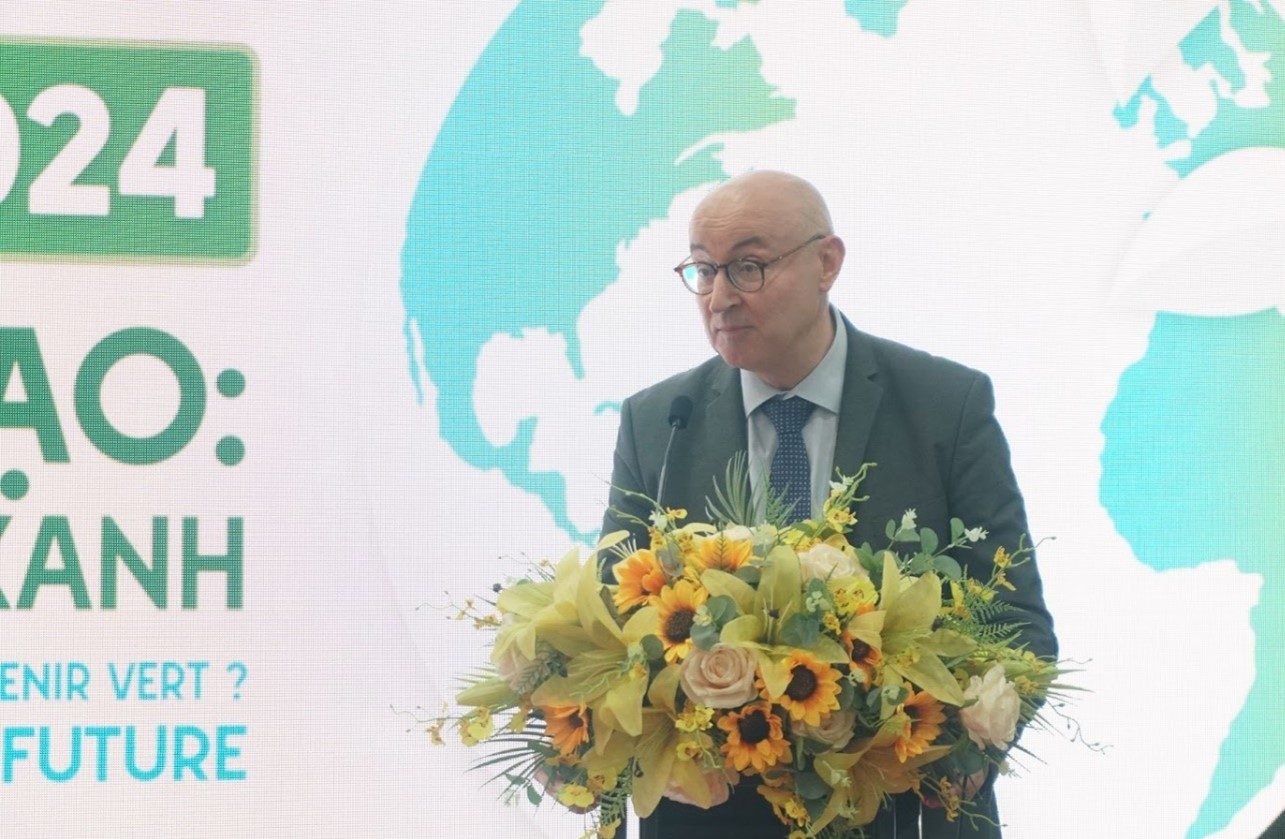Franconomics 2024: Wallonia’s Path to Renewable Energy and a Green Future
At the International Forum Franconomics 2024, Pierre Du Ville, General Delegate of Wallonia-Brussels in Vietnam and President of the Group of French-speaking Embassies and Delegations, delivered an insightful presentation on renewable energies and the promising scenarios for a green future, focusing on the energy policy of the Walloon Region.

Mr. Pierre Du Ville, General Delegate of Wallonia-Brussels in Vietnam and President of the Group of French-speaking Embassies and Delegations
The presentation began with an overview of Belgium’s unique institutional context regarding energy policy distribution. He explained how responsibilities are divided between federal and regional levels:
- The federal state manages nationally critical aspects such as security of supply, nuclear fuel cycles, major infrastructure, and tariffs.
- The regions handle local matters including electricity distribution, new energy sources (except nuclear), energy recovery, and rational energy use.
A significant highlight was Belgium’s commitment to completely phase out nuclear power by 2035, with a detailed timeline for the closure of various nuclear facilities at Tihange and Doel power stations. This transition represents a major shift in the country’s energy landscape.
Du Ville then focused on the Walloon Region’s Air Climate Energy Plan (PACE), a comprehensive initiative that aligns with both the National Climate Energy Plan and the European Green Deal. The plan outlines an ambitious vision that includes:
- Abandoning nuclear energy by 2025
- Transitioning away from fossil fuels toward 100% renewable energies by 2050
- Emphasizing energy efficiency improvements
The plan’s concrete measures include:
- Energy renovation bonus programs
- Support for solar panel installations
- Development of electric vehicle infrastructure
- Positioning Wallonia as a future green hydrogen hub
Looking toward the future, Du Ville emphasized Wallonia’s commitment to aligning with European objectives for 2030 and 2050, while maintaining flexibility to adapt to emerging climate challenges.
The presentation demonstrated Wallonia’s comprehensive approach to energy transition, combining policy frameworks with practical implementation strategies to achieve a sustainable energy future.



